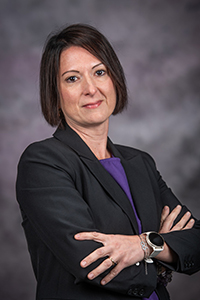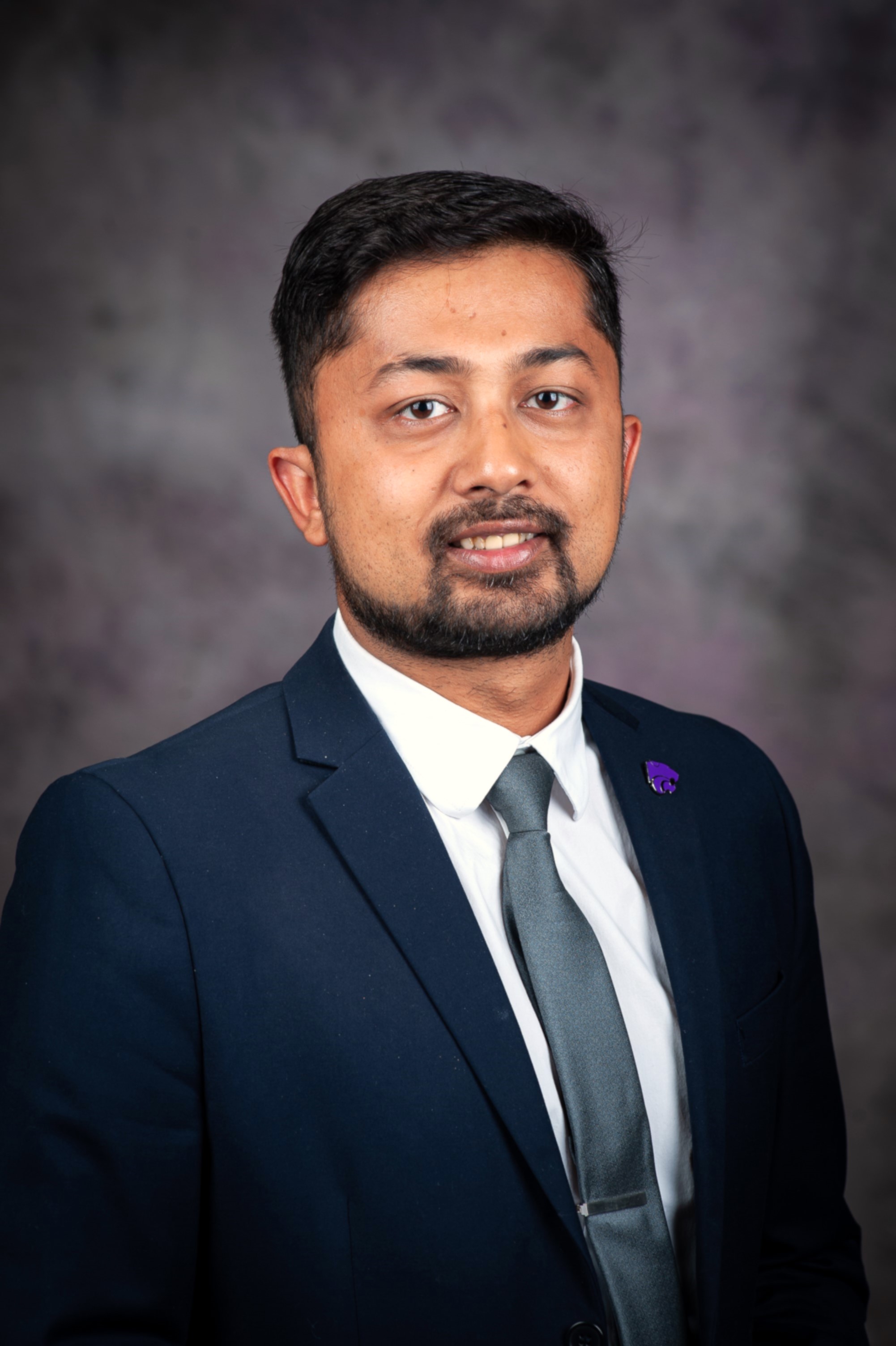K-State faculty drive student success with exceptional graduate student mentoring
Kansas State University's Valentina Trinetta and Gaurav Jha are exemplary faculty members who share their expertise and advice through student mentorship.
Trinetta, associate professor of food, nutrition, dietetics and health, and Jha, assistant professor of agronomy, go beyond the classroom in ensuring graduate students can be successful both personally and professionally.
Trinetta's research focuses on understanding foodborne pathogen ecology and identifying microbial entry routes into the food supply chain. She also serves as the director of the Food as Medicine program and the Food Safety and Public Health Lab at K-State.
Jha's research is dedicated to minimizing the environmental footprint across different spatiotemporal scales. As the director of the innovative Digital Agronomy Research Team, his lab focuses on maximizing agricultural production in the integrated agricultural system of Kansas using proximal remote sensing techniques.
Valentina Trinetta: Cultivating the next generation

Trinetta says she mentors graduate students because she believes in the power of education and the importance of cultivating the next generation of researchers and professionals.
"It's deeply rewarding to witness a student grow in confidence, skill and purpose — and to know that I've played a part in helping them reach their potential," she said.
Trinetta said that her graduate students have shaped her mentoring style over the years. They have taught her to be more flexible, to listen more than she speaks and to continuously evolve.
"Each student brings a unique perspective and set of needs, and working with them has pushed me to adapt my style to be more empathetic, culturally responsive and collaborative," she said. "Their curiosity and persistence inspire me to stay engaged, innovative and open to new mentoring strategies."
Gaurav Jha: People before projects

"I mentor because I believe people come before projects," Jha said. "I have been on this journey myself, learning how to ask the right questions, how to get back up after a failed experiment, how to navigate systems that were not built for everyone.
"I mentor because I know how much it meant to have someone believe in me (shout-out to my mentors), even when I was not sure I belonged. Now it is my turn to create that space for others. If I can play even a small role in helping someone bring their whole self to the table, that is a legacy I am proud of."
Jha emphasizes to his graduate student mentees that they are not just names on a roster but colleagues and co-creators of knowledge.
"Every time they succeed, stumble or dream bigger, it shapes how I show up for the next student. So, in many ways, I do not just mentor students, they mentor me right back, reminding me of the joy of discovery and the power of never stopping to learn," he said.
Recognizing research mentorship
In recognition of their dedication to graduate student success, Trinetta and Jha have both been recognized for outstanding mentoring with the Graduate Faculty Mentor Award.
"The influence of exceptional mentorship on graduate students extends far beyond their academic achievements and career readiness," said Claudia Petrescu, Vice Provost for Graduate Education and Dean of the Graduate School. "A supportive mentoring relationship significantly contributes to graduate students’ well-being and overall satisfaction at K-State. This award celebrates graduate faculty who champion this holistic approach to student success."
Graduate student nominators highlighted Trinetta's unwavering dedication to their success. By supporting their success at research forums and conferences, Trinetta serves as a guide to her graduate students, helping them navigate research and personal development.
"Trinetta consistently encourages me to present my work and communicate science publicly. Even when I feel hesitant or unsure, she seeks out opportunities for me and motivates me to step outside my comfort zone," said one student nominator. "She is also supportive of my career planning and guides me towards valuable opportunities."
Jha's nomination underscores his profound commitment to nurturing his graduate students' growth as both researchers and professionals through a variety of experiences at and beyond K-State.
"His mentorship has been one of the most meaningful parts of my graduate journey for challenging me, guiding me and believing in my potential even when I doubted myself," one graduate student nominator said. "He holds his students to a high standard because he genuinely wants us to grow, not just as researchers but as professionals. Even during difficult conversations, his commitment to our development is clear and unwavering. I’m truly grateful for the way his guidance has helped shape my perspective, strengthened my work and encouraged me to grow with more confidence."
Award recipients are selected based on nominations from graduate students and their students' participation in three annual research presentation events: the Three Minute Thesis Competition, the Research and the State symposium, and K-State Graduate Research, Arts, and Discovery Forum, or K-GRAD. Each receives a $1,000 award from the Graduate School.
Three graduate faculty members were selected for honorable mention: Emily Mailey, associate professor of kinesiology; Shakil Kashem, assistant professor of landscape architecture and regional and community planning; and Ryan Rafferty, associate professor of chemistry.